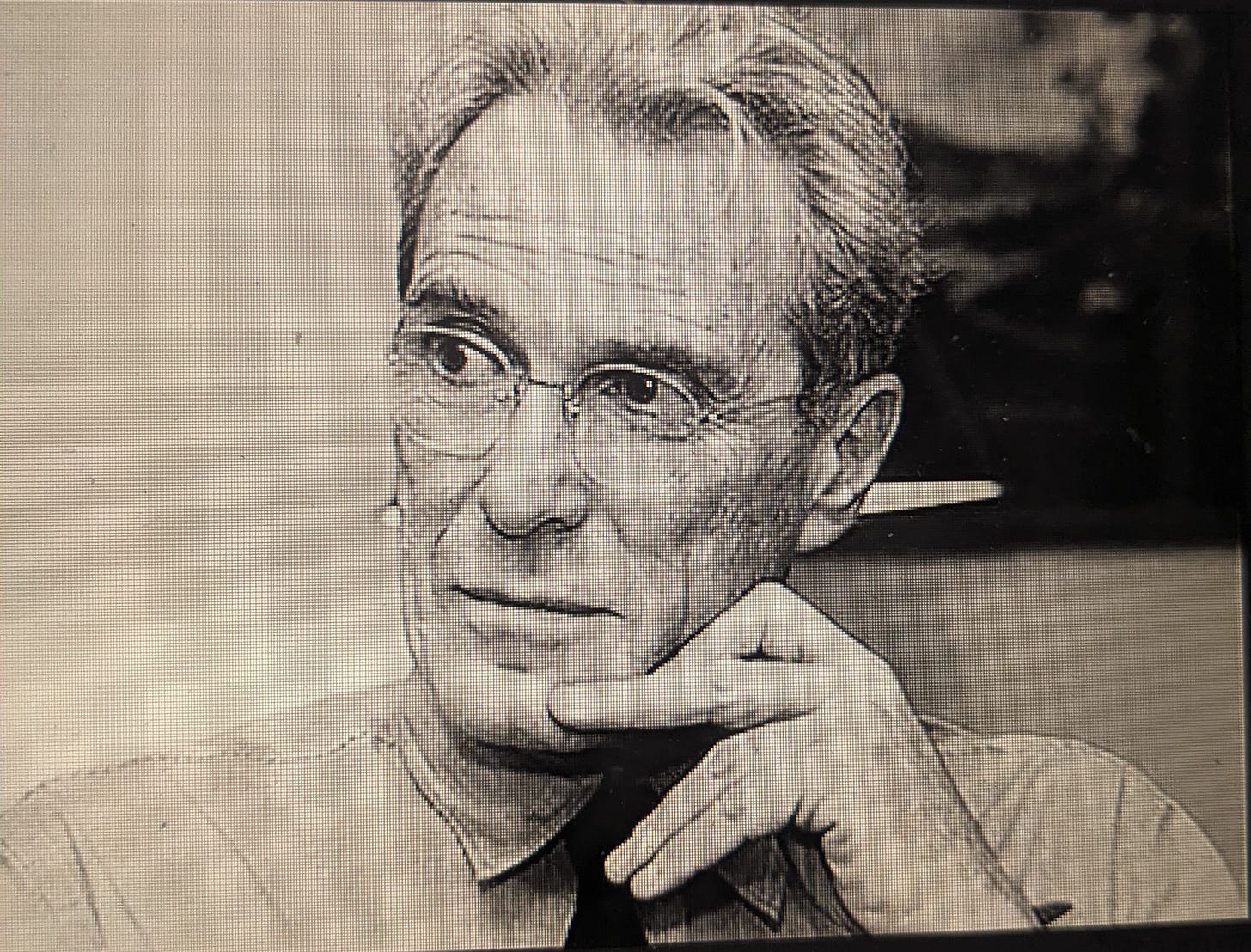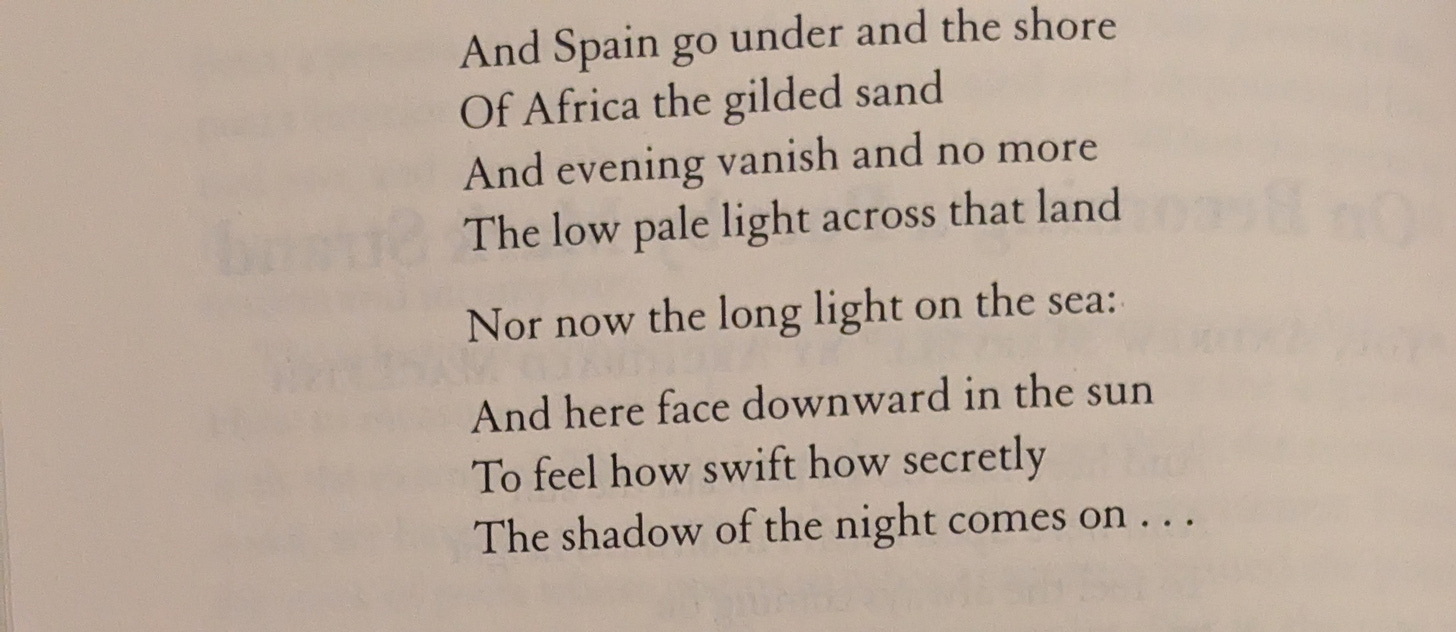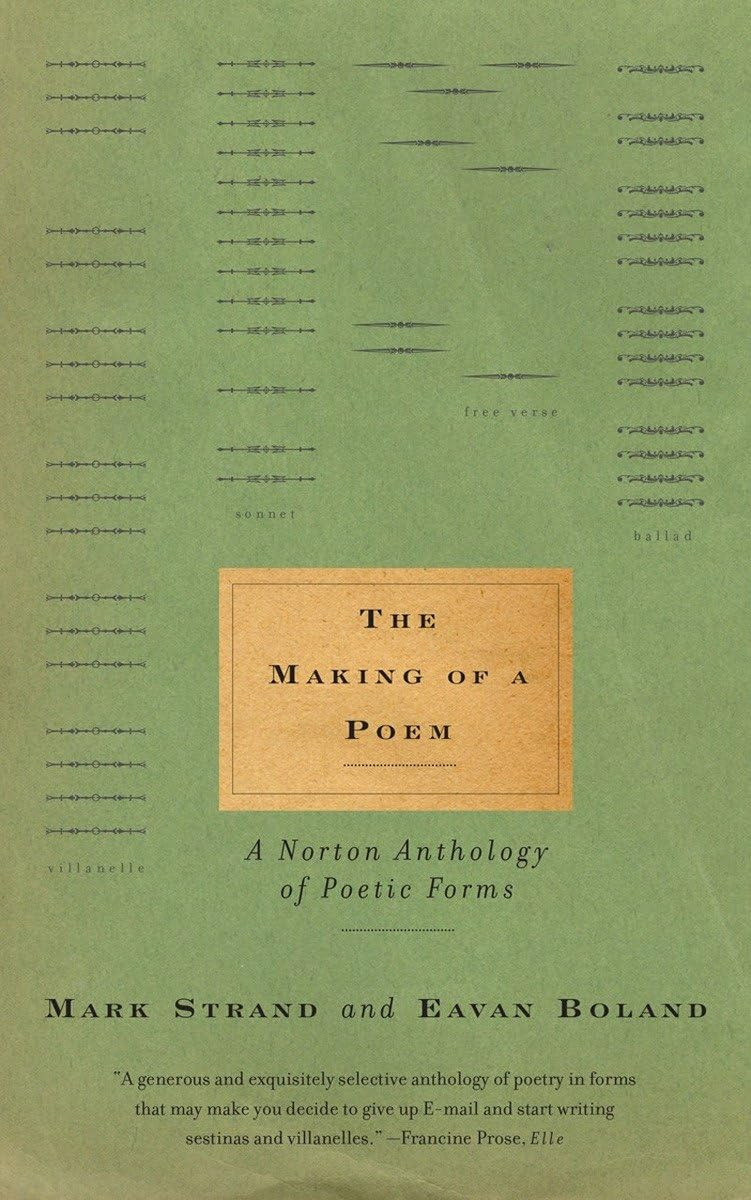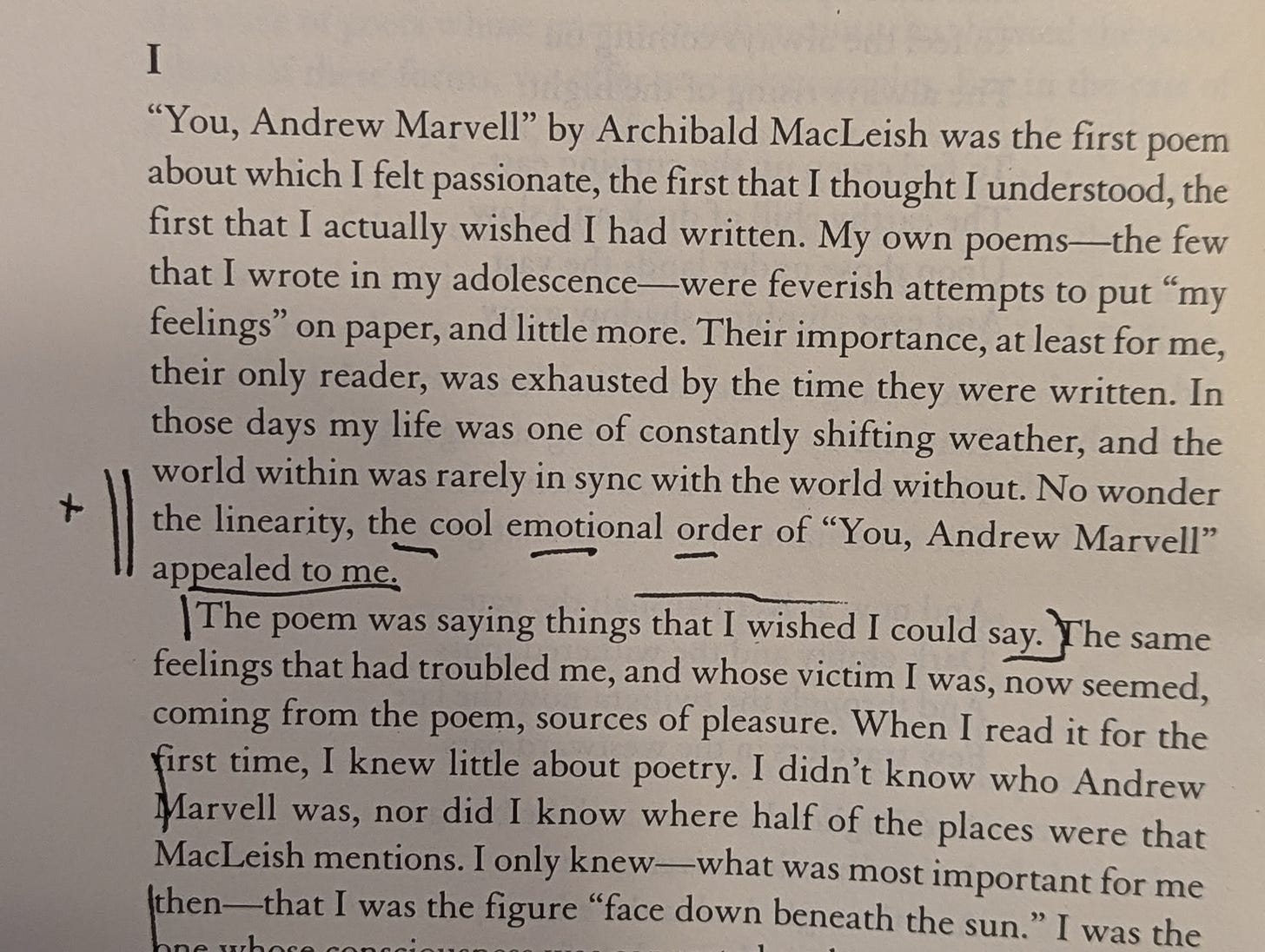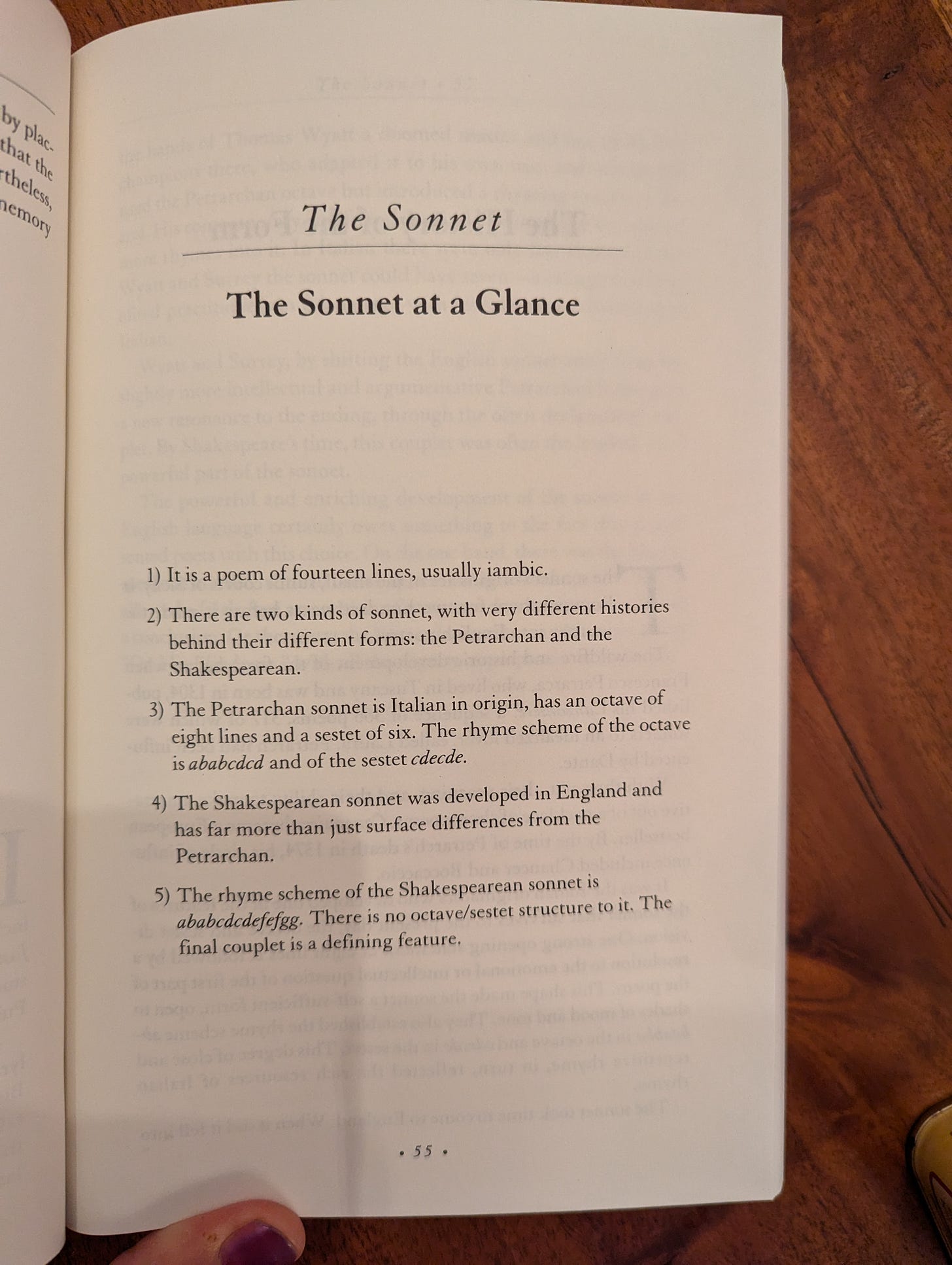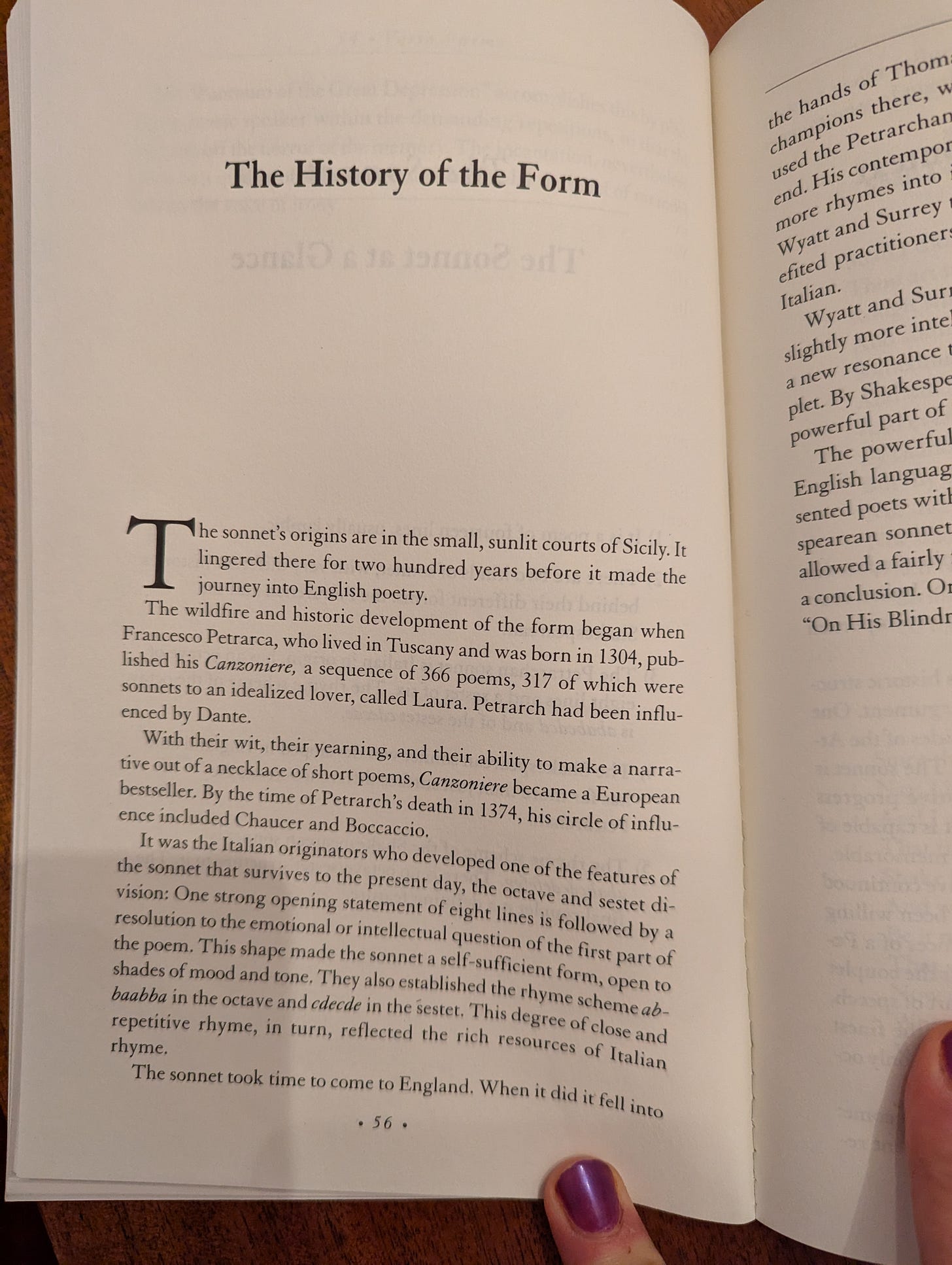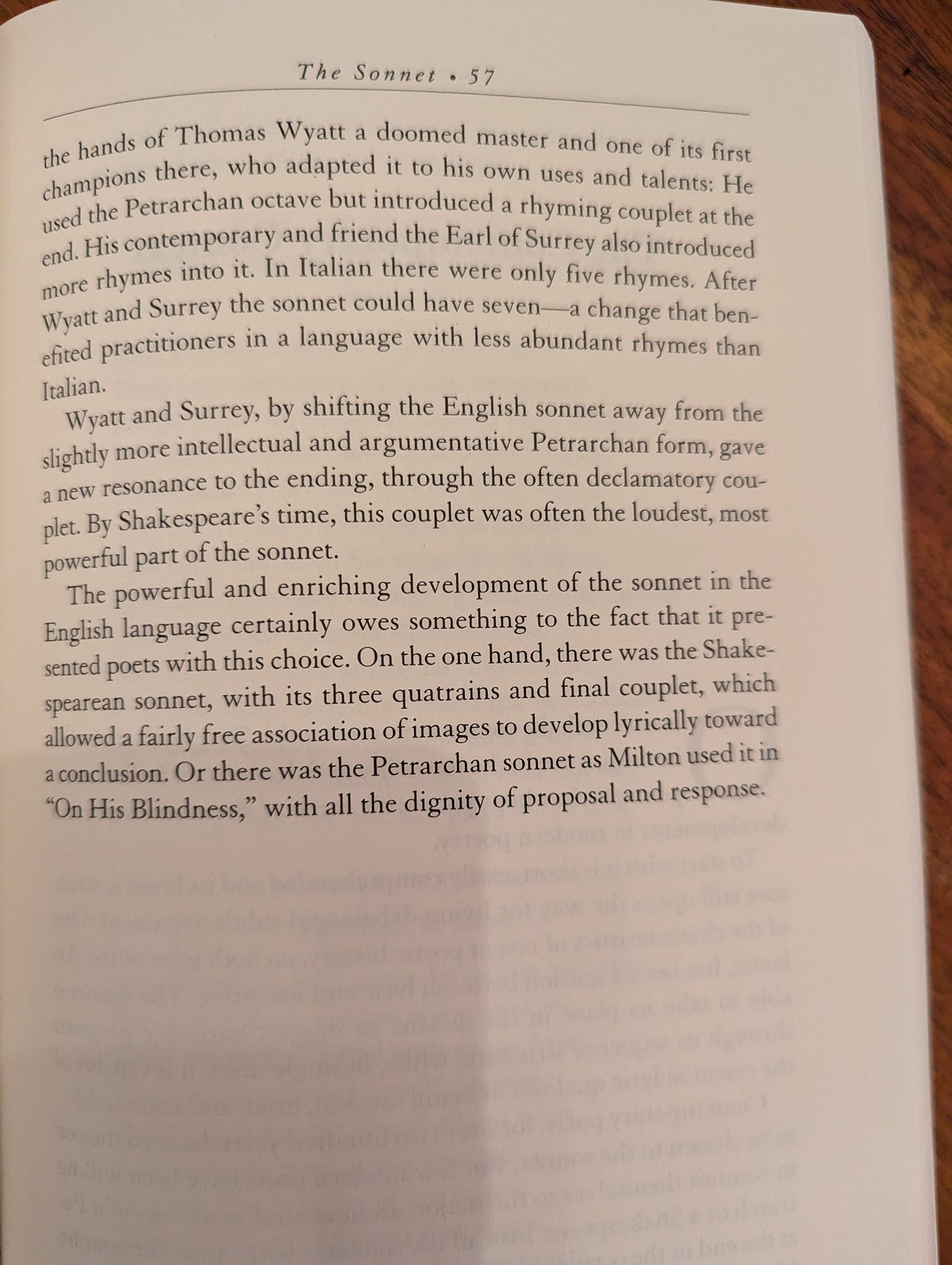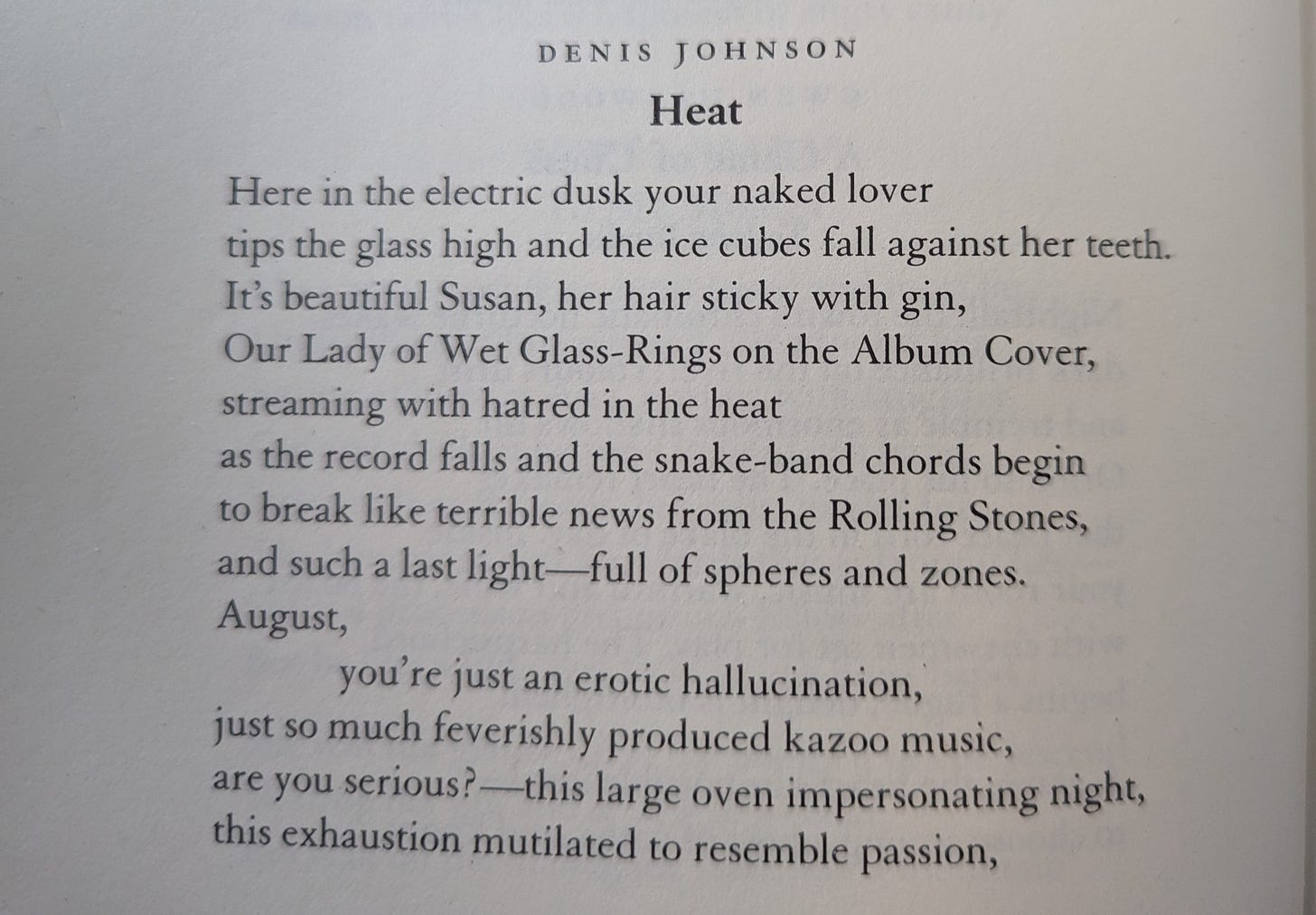One Great Book on Poetry
A letter of recommendation for The Making of a Poem, edited by Mark Strand & Eavan Boland.
I am often asked to recommend one book that a person can read about a particular subject. “What is the best Bible translation?” comes up at almost every reading I give. My students like to ask: “What is your favorite book?” And sometimes there is a variation: “Who is the best writer alive?”
It’s hard to answer these kinds of questions, but when it comes to an introductory poetry anthology, or an anthology that can teach working poets something they didn’t realize they didn’t know, I have an answer—The Making of a Poem: A Norton Anthology of Poetic Forms, edited by Eavan Boland and Mark Strand, who are sadly both now gone from this earth.
My teacher, Mark Strand.
Professor Strand was my teacher, and I feel that he is still teaching me when I read—and reread—this book. It has been my honor to use this book again in an introductory poetry class that I am teaching this fall in Chicago to 20 very motivated students.
When I was Strand’s student, most students wrote in free verse. That is just as true now. But form—and the history of poetic form—still matter. So too does the ability to read a poem deeply, and those two eternal reasons are why I want to recommend this book to you.
The Irish poet Eavan Boland (1944-2020), co-editor of The Making of a Poem. She taught for many years at Stanford.
The first thing I love about this book, originally published in the year 2000, is the introductory essay Professor Strand (1934-2014) wrote about becoming a poet. He describes the fundamental experience of not understanding. He writes about how, as a teenager, he was enamored with the poem “You, Andrew Marvell” by Archibald MacLeish (1892-1982).
If easier, you can read the poem here, at The Poetry Foundation site: https://www.poetryfoundation.org/poems/43003/you-andrew-marvell
I love how Professor Strand walks the reader through the experience of the first poem he ever truly, deeply loved. While it is always possible to criticize any anthology—this poet is missing, that poet is missing—what comes through in this book is, always, the editors’ incredible and lifelong love of poetry.
The Making of a Poem by Mark Strand and Eavan Boland.
Professor Strand writes about how he was drawn in by the ordered quality of this poem. If you read “You, Andrew Marvell” out loud—which I highly recommend—you can hear what Strand is talking about.
I love how Strand lists all he didn’t know. He had no idea who Andrew Marvell was; he didn’t recognize half the places MacLeish mentions. And yet he recognized that the poem was doing something he wished he could do. "
“The poem was saying things that I wished I could say,” Strand writes, in his trademark plain, clear, and deeply moving style, which is evident in both his poetry and his prose. It is out of that wish—how does this poem do what it does? —that the book happens.
In many ways, this anthology is a manual. It’s a how-to book on art.
I love how The Making of a Poem explains each form in short bullet points. For instance, it summarizes the villanelle in 6 points, then offers the history of the form, and comments on the contemporary context. It does the same for all kinds of forms—the sonnet, the pantoum, and the sestina, along with the pastoral and the elegy. I always, always learn something, no matter how many times I have reread this book.
And Strand and Boland make things very clear. Here, for instance, is the “sonnet at a glance”.
And here is their take on the history of the form.
How beautiful is it to think of the sonnet as a proposal and a response.
Strand and Boland seem to find poets I have never heard of, poems I didn’t know existed, or writers I had no idea wrote poetry. For example, one of my favorite poems in the book is by the fiction writer Denis Johnson. (Yes, he wrote sonnets!)
Here is the aptly titled “Heat”:
Oooh that final couplet! Denis Johnson, reinvigorating the sonnet.
What else? This book has a precious list of books for further reading. (How I wish I could ask Professor Strand for another reading list!) It has a glossary—who better to ask about a poetic term than Boland and Strand? And it has short biographies of each poet, along with a surprisingly useful index. If you forget the title of a poem, for instance, the index will help you because it also includes first lines.
For each form, there is a close-up of one particular poem. Some close-ups include the famous and haunting “One Art” by Elizabeth Bishop or the dreamy “What Lips My Lips Have Kissed” by Edna St. Vincent Millay, a best-selling author in her day. (“She’s describing situationships,” one of my students said recently, about this poem. Exactly, I thought!)
If you don’t know this book, and have any interest in reading poetry, or writing poetry, or living with poetry in any way—I recommend The Making of a Poem, close up.
Salon this Sunday: Richard Michelson & Yehoshua November!
I am super-excited to host two fantastic poets at this Sunday’s salon, at 12 noon EST on September 29th. It is a rare treat to hear Rich Michelson and Yehoshua November read their poems—and talk about how their poems were made! After that, we’ll open it up to your questions.
You can read about Michelson’s poems here. Are We Here to Be God’s Body or God’s Language? (substack.com) A post on Yehoshua November’s new book is coming soon, so please keep an eye out for it—but you can read a sample poem and order the collection here: The Concealment of Endless Light, poems by Yehoshua November | Orison Books
Salons are a thank-you for paid subscribers who help make continuing this newsletter possible. Monthly, annual, and gift subscriptions are available, and I’ll send Zoom info to new subscribers up to 30 minutes before we start. My hope is to spotlight writers, translators, and thinkers who deserve more attention—and to give readers a chance to ask questions in a welcoming and personal space. Hope to see you there!
********************************************************************************************************
Hope you enjoyed this newsletter! Thank you for your support of writing with depth.




